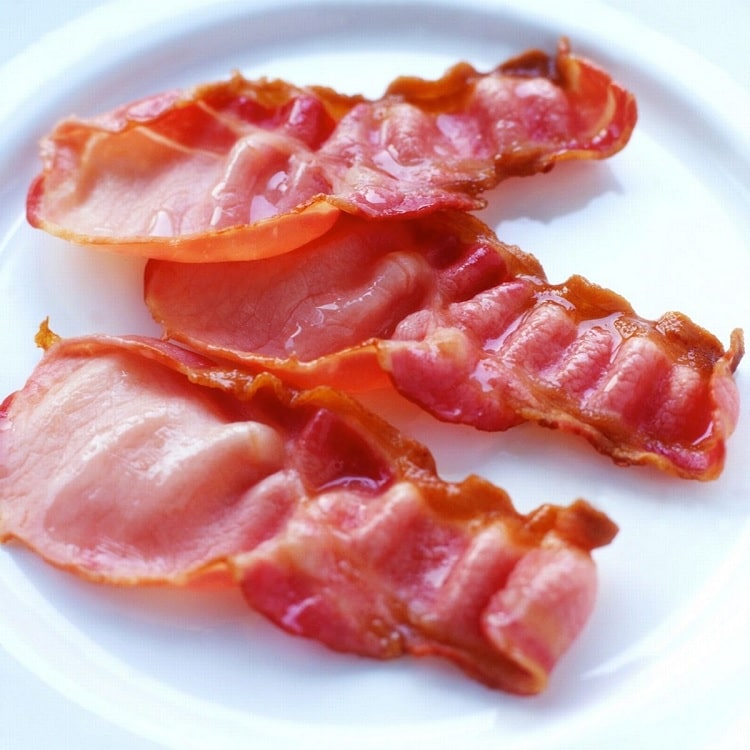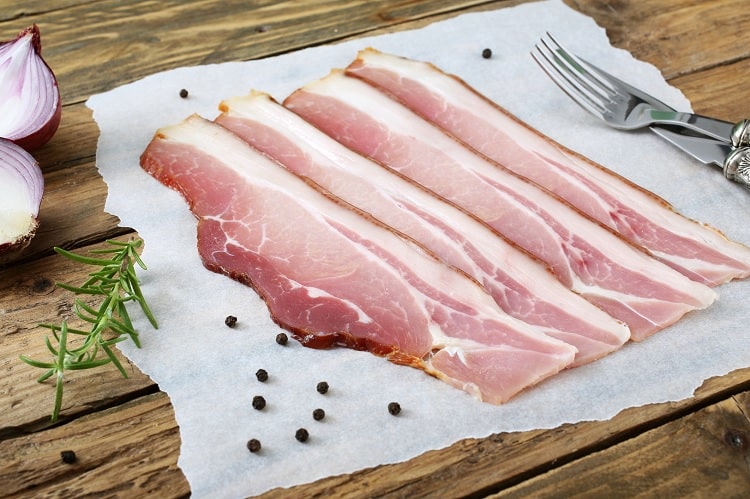Get Slim with Bacon: The Ultimate Guide to Bacon and Weight Loss
Bacon is a popular food among people in the US. At the same time, there is a growing health concern among consumers about having bacon in their diets. Since bacon is a kind of processed meat, people on their weight loss journey are still deciding whether to eat bacon. You can include bacon as a part of your healthy diet by following certain methods.
Any diet you engage in should suit your weight loss goals and health. Restricting specific foods in your diet can make it more desirable, and there is a moderate chance of ending up eating an excess amount of such foods. When you learn the optimal quantities of consuming foods for weight loss, you can lose weight steadily and maintain weight loss in the longer term.
Having prior knowledge about your dietary needs and goals can help you lose weight without making specific foods off-limits. This article will discuss whether bacon can support weight loss, its potential health benefits, and its downsides.

Bacon Nutrition Facts
Bacon is prepared from pork through a curation process, which modifies its nutritional information. Because of the number of ingredients and processing, it has a substantially longer shelf life than fresh pork.
Bacon is considerably high in calories and fat, thus making people wonder if it can support weight loss. But nearly half of the fats found in bacon are monounsaturated and polyunsaturated fats, which are beneficial fats that support your heart health.
Despite the fact that bacon has a significant amount of saturated fat, the health consequences of saturated fat on individuals depend on the type of saturated fat, the context of their diet, and their way of life in general. Bacon is composed of other specific nutrients that can support your overall health.
A 100-g serving of cooked bacon has the following nutrient profile:
- 37g of animal protein
- B vitamins
- Selenium
- Phosphorus
- Iron
- Magnesium
- Zinc
- Potassium
The B vitamins found in bacon are vitamin B1, vitamin B2, vitamin B3, vitamin B5, vitamin B6, and vitamin B12. B vitamins play a significant role in DNA production and repair, breaking down food, cellular signaling, hormone, and cholesterol production, and protein, fat, and carbohydrate metabolism.
Is Bacon Good for Weight Loss?
Bacon is high in fat and low in carbs, making it suitable for Atkins, Paleo, and Keto diets. Including high-fat foods in your diet while reducing your carb intake can help switch to fat metabolism, where your body can utilize fat for fuel and reduce fat storage. Consuming bacon, which is rich in fat, can stimulate fat metabolism and increase fat burning when followed in a low-carb diet.
A 2018 study published in the Journal of Nutrition revealed that a high-fat diet boosted fat oxidation in adults when compared with a high-carb diet. Increased fat oxidation is associated with a reduction in body weight. Bacon consumption can thus support your weight loss goals when taken as a part of a low-carb diet.
Another method bacon can help you lose weight is because of the amount of protein it contains. Bacon is an excellent source of protein, a macronutrient that is vital for muscle growth and recovery. When you have lean muscle, your body can burn more calories, thus leading to weight loss. Bacon can also cause a satiating effect because of its protein content.
In addition to bacon consumption in moderation, you should manage your macro ratio and increase your intake of nutritious, low-carb veggies and fruits to lose weight effectively and healthily. Adopting cardio and strength training on a daily basis can enhance your weight loss efforts and help you achieve your weight loss goals. Bacon consumption can thus help you lose weight when taken as part of a balanced diet and an exercise regimen.
How to Consume Bacon for Weight Loss?
Even though bacon can support weight loss, you should take into consideration some key points to sustain your weight loss goals. Since bacon is high in fat and calories, it is best to consume bacon in moderation to lose weight steadily and avoid weight gain in the long run. Here are some suggestions for eating bacon to support your weight loss efforts:
- The way to include bacon in your diet: Instead of consuming bacon as a main course, you can utilize bacon as salad toppings or soups to manage your bacon consumption.
- How to cook bacon: The way you cook bacon helps you get rid of excess fat. It is best to pan-fry bacon until the majority of the fat melts off of it. Then, you can drain the rest of the fat by placing it on paper towels.
- Maintain healthy portion sizes: It is best to keep track of your portion sizes to sustain weight loss. You can consume bacon twice or thrice a week.
- The optimal time to consume bacon: The best time to consume bacon for weight loss is in the morning as part of a low-carb diet. Then, your body is likely to enter into a fat-burning mode after bacon and lose weight.
Including bacon in your diet in moderation can aid in sustaining weight loss.
Health Benefits of Bacon
Unlike popular belief, bacon provides you with some health advantages when taken as part of a healthy diet. We shall delve into some of the nutritional health benefits of bacon.
Boosted Energy Levels
Bacon contains a high level of protein, which can boost energy levels in the body. Protein intake increases muscle growth and repair, thus providing you with enhanced energy levels. When bacon is consumed as a part of a low-carb diet, your body utilizes nearly 15% energy from protein during intense exercise. Bacon is also packed with B vitamins that can provide you with increased energy levels.
Improves Mood
Bacon contains trace minerals like potassium and magnesium. Both these minerals are found to improve mood and reduce fatigue. Magnesium is a nutrient that plays a vital role in modulating the body’s response to stress. Bacon also contains protein, a nutrient that plays a significant role in the production of primary neurotransmitters and relieves symptoms of stress, depression, and anxiety.
Improves Cognitive Function
Bacon contains a relatively high amount of choline. Choline is a nutrient that can boost memory function, improve brain development, and support the health of the central nervous system. Consuming bacon can thus support cognitive function.
Supports Heart Health
Bacon is high in omega-3 fatty acids, which are beneficial fats that can support your cardiovascular health. Healthy fatty acids like oleic acid and monounsaturated fats in bacon can be beneficial for your heart when taken in moderation. Studies show that these beneficial fatty acids can support a healthy heart.
Downsides
The processing of bacon involves additives like nitrates and nitrites, which can form carcinogens in cooking. Bacon contains high levels of sodium, increasing the risk of high blood pressure. When you have high blood pressure, you are at a higher risk of heart disease. A diet high in salt also increases the risk of stomach cancer.
Processed meats like bacon can increase the health risk of certain cancers. Bacon can be bad for your health when taken at high levels every day. Increased consumption of bacon can cause an increase in abdominal fat, thereby leading to overall weight gain.
The Bottom Line
Everyone has unique dietary needs based on their age, gender, activity level, and goals. Before consuming any food for weight loss, you need to understand your body composition and daily calorie needs to achieve sustainable weight loss. Bacon can aid in weight loss when taken in moderation as part of a low-carb diet.
Due to its high-fat content, it can turn your body into a fat-burning mode when included in a low-carb diet. It is best to seek the help of your dietician before consuming bacon for weight loss. Understanding your dietary needs and including bacon in your balanced diet can help you achieve better outcomes.
Faqs
Bacon contains a high level of fat and protein, both of which can increase metabolism and support weight loss. Studies show that a high-fat diet can enhance your fat metabolism and cause a reduction in abdominal fat. Thus, bacon consumption in moderation as part of a low-carb diet can help you lose belly fat.
Consuming bacon at moderate levels can support weight loss. But when you eat an excess of bacon a day, you have a high chance of obesity or being overweight because of its high-calorie content. Consuming bacon in higher quantities can thus speed up weight gain.
Bacon is low in carbs and high in fat, making it suitable for diets like Atkins, Paleo, and Keto. When you consume fewer carbohydrates a day, your body can burn more calories, as per science. Thus, eating bacon as part of a low-carb diet can help you lose weight healthily and steadily. In addition, bacon breakfast can be a major part of a weight loss plan.







